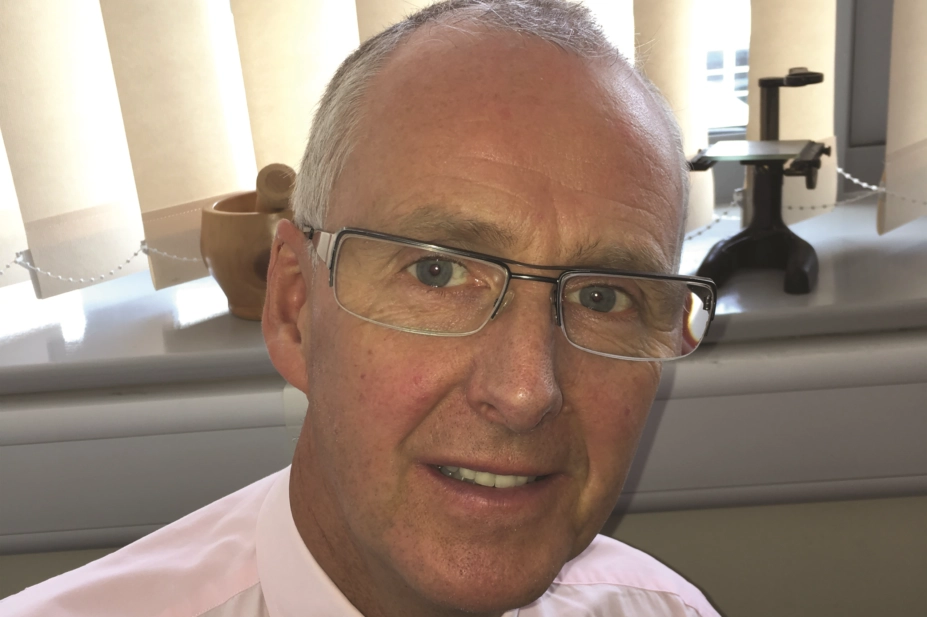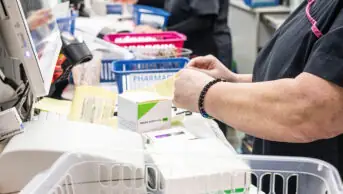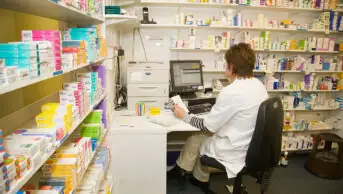
Courtesy of Nigel Ratcliffe
The scientific and clinical fundamentals of the MPharm degree must not be “diluted” by too much focus on business matters and leadership training, warned Nigel Ratcliffe, chair of the Pharmacy Schools Council, at the 2018 International Pharmaceutical Federation (FIP) Congress.
Speaking during the ‘Pharmacy in Great Britain’ seminar, hosted by the Royal Pharmaceutical Society (RPS), Ratcliffe said that to ensuring the continual relevance of the degree means keeping on top of emerging science and the changing needs of the community, alongside a continual review of the how pharmacists should contribute to meet those needs. But he advised against “diluting” the degree with excessive focus on business matters.
“Some people say that pharmacists come into community pharmacy without knowing how to run a business,” Ratcliffe told The Pharmaceutical Journal. “Well, we’re not doing an MBA. That [knowledge] should come through the [preregistration training], and through your long-term experience. We’ve got to be very careful that the core components and science of the course are not diluted. We don’t want to reduce the amount of kinetics, or therapeutics, for example, because we’ve got to introduce business terms and leadership.
“We will dilute the fundamentals if we do that.”
During his presentation, Ratcliffe told delegates that the core science of the MPharm is an essential part of ensuring pharmacists are “as confident as any other member of the multidisciplinary team”.
He urged the UK government to make full use of the skills pharmacists have, saying that pharmacists “are a great part of the solution” to addressing gaps in the changing healthcare workforce.
Ratciffe also said that the various representative bodies in the pharmacy sector need to “get out of fractured lobbying groups” and speak in unison about the future direction of the sector.
“There’s a lot we can do, but we need to speak as one voice.”
At the same seminar, Peter Kopelman, chair of the RPS Faculty and Education board (FEB), outlined plans for a mandatory UK-wide professional development roadmap: a scheme first proposed by a subgroup of the FEB in 2017.
The story of many early career pharmacists was one of isolation and lack of supervision, Kopelman said. “We hear that students want more certainty around a career structure. Every pharmacist should be required to take a UK-wide foundational programme, with defined programme of trainee support.”
The concept has the support of the four nations’ chief pharmaceutical officers, he added, and the RPS was now considering how to implement such a programme. To support this, the Society proposed the formation of an educational governance group, the UK Pharmacy Postgraduate Training Board, who will hold their first meeting in September 2018.
This article was amended on 5th September 2018 to include the correct name of the Pharmacy Schools Council.
The 2018 FIP congress in Glasgow, Scotland, brings together pharmacy practitioners and pharmaceutical scientists from around the world to consider ways of extending the role of pharmacists so that they play a full part in ensuring patients, and health systems, achieve full benefit from the medicines people take.
The theme of the 78th FIP World Congress of Pharmacy and Pharmaceutical Sciences is Pharmacy: Transforming outcomes!
This is the first time that the FIP World Congress has been held in the UK for nearly 40 years. The last time was in 1979, making this a truly unique learning opportunity for pharmacists and pharmaceutical scientists in Great Britain.
UK healthcare company RB is Gold Sponsors of this year’s congress.


